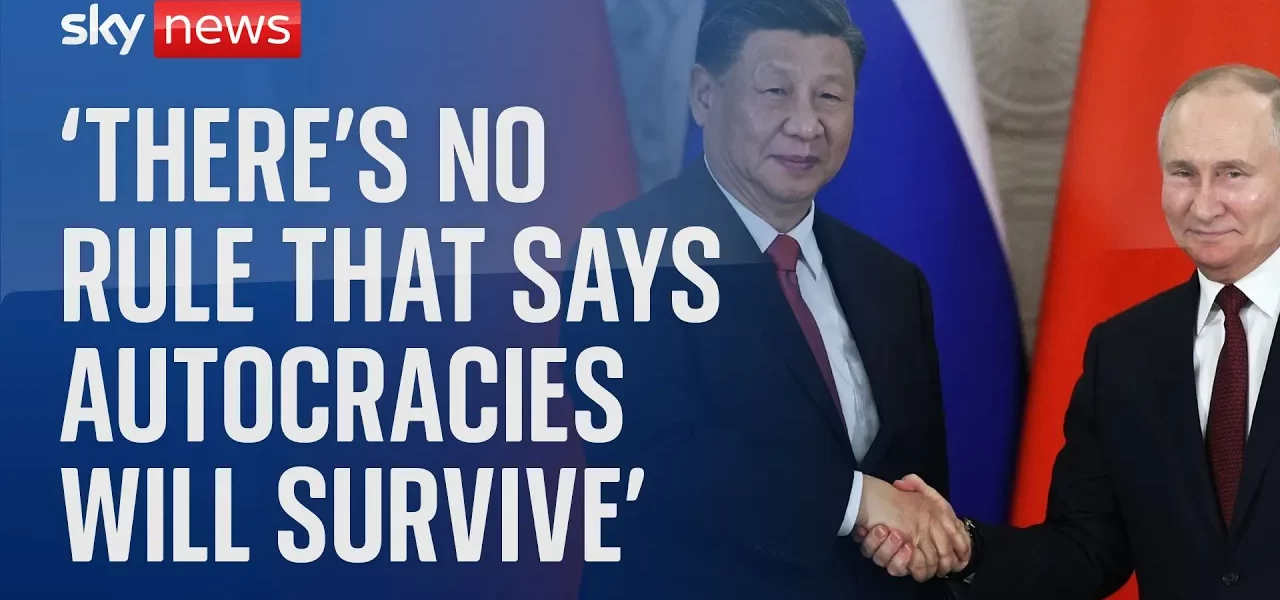The Dynamics of Contemporary Autocracies: China, Russia, and Beyond

In a world increasingly dominated by autocratic regimes, understanding the complex relationships and influences among these nations is essential. This article delves into the network of autocracies, their cooperation, and the implications for global democracy and governance.
Introduction
As we navigate the geopolitical landscape of the 21st century, it becomes evident that autocracies are not just limited to well-known entities like China and Russia. The proliferation of autocratic governance has led to a significant number of nations adopting similar regimes, thereby challenging democratic ideals worldwide. This article explores the intricate web of these autocratic states, their alliances, and the ideological and opportunistic motivations behind their cooperation.
The Global Landscape of Autocracies
Today, numerous nations operate under autocratic regimes. While China and Russia are often highlighted, there exists a broader network of autocracies that share common interests against liberal democracies. The countries within this network include:
- China
- Russia
- Iran
- North Korea
- Zimbabwe
- Venezuela
These nations, though differing in ideology—from communist to theocratic—have found common ground in opposing the principles of liberal democracy, such as transparency and the rule of law.
Cooperation Among Autocratic Regimes
The collaboration among these autocratic states is primarily transactional. They may not share similar ideologies, but they unite in their opposition to liberal values. This section examines the nature of their cooperation:
Common Goals and Interests
Despite diverse political systems, the autocracies have a collective goal: to undermine liberal societies. Their cooperation can be seen in various forms, including:
- Support in international forums
- Mutual assistance in information warfare
- Economic partnerships
Opportunistic Alliances
The alliances formed among these nations often reflect opportunistic motives rather than ideological unity. Such collaborations are strategic, aimed at enhancing their political leverage against democratic countries.
The Question of Successful Autocracies
While some argue that certain autocracies have achieved economic success, it raises the question: are these successes legitimate or merely the result of a few individuals’ selfish interests? This section explores the complexities surrounding the notion of successful autocracies:
Case Studies: China, Zimbabwe, and Venezuela
- China: Often cited as a successful autocracy, China’s economic rise has been facilitated by its unique bureaucratic structure and selective liberalization of its economy.
- Zimbabwe: In stark contrast, Zimbabwe exemplifies the pitfalls of autocratic rule, marked by severe poverty and poor governance.
- Venezuela: Once the richest country in South America, Venezuela’s decline highlights the detrimental impact of autocratic leadership and mismanagement.
The Impact of Autocracies on Global Politics
The influence of autocratic regimes extends beyond their borders, affecting international relations and domestic policies in democratic nations. This section discusses various aspects of this impact:
Kleptocracy and Financial Systems
One of the significant concerns regarding autocracies is the rise of kleptocracy, where corrupt leaders exploit their power for personal gain. The implications include:
- Increased money laundering activities
- Manipulation of financial systems
- Global economic instability
The Role of Technology and Finance
The advancement of technology, including cryptocurrencies, poses challenges in regulating financial systems. The potential for autocracies to leverage these technologies raises questions about the future of global finance.
Conclusion
The rise of autocracies and their intricate networks present significant challenges to the principles of democracy worldwide. Understanding these dynamics is crucial for shaping effective foreign and domestic policies. As we move forward, it’s imperative to engage in conversations that address these issues and work towards strengthening democratic institutions globally. To learn more about the influence of autocracies and how we can counter their impact, explore our related articles on democratic resilience and global governance.
“`




